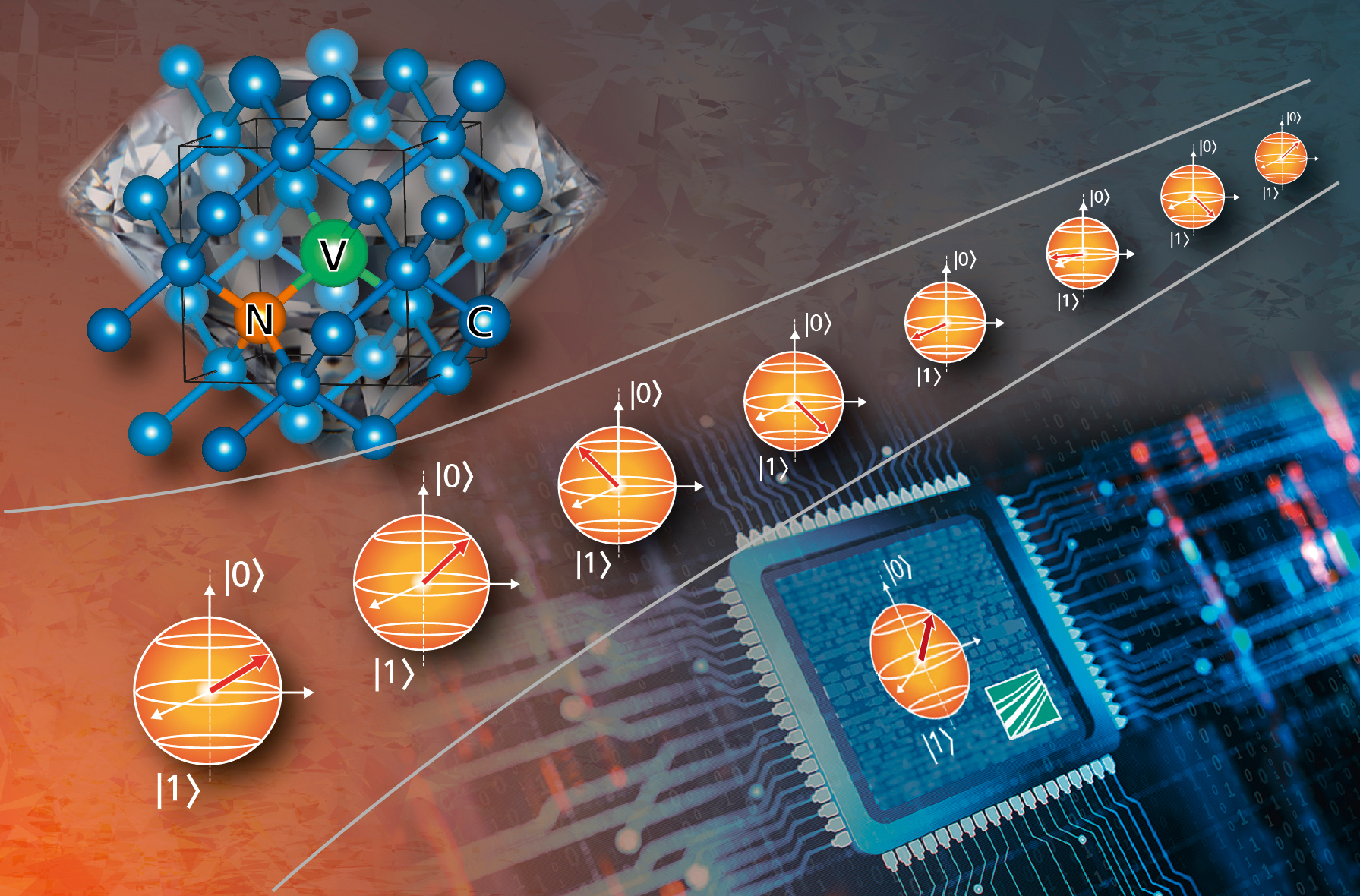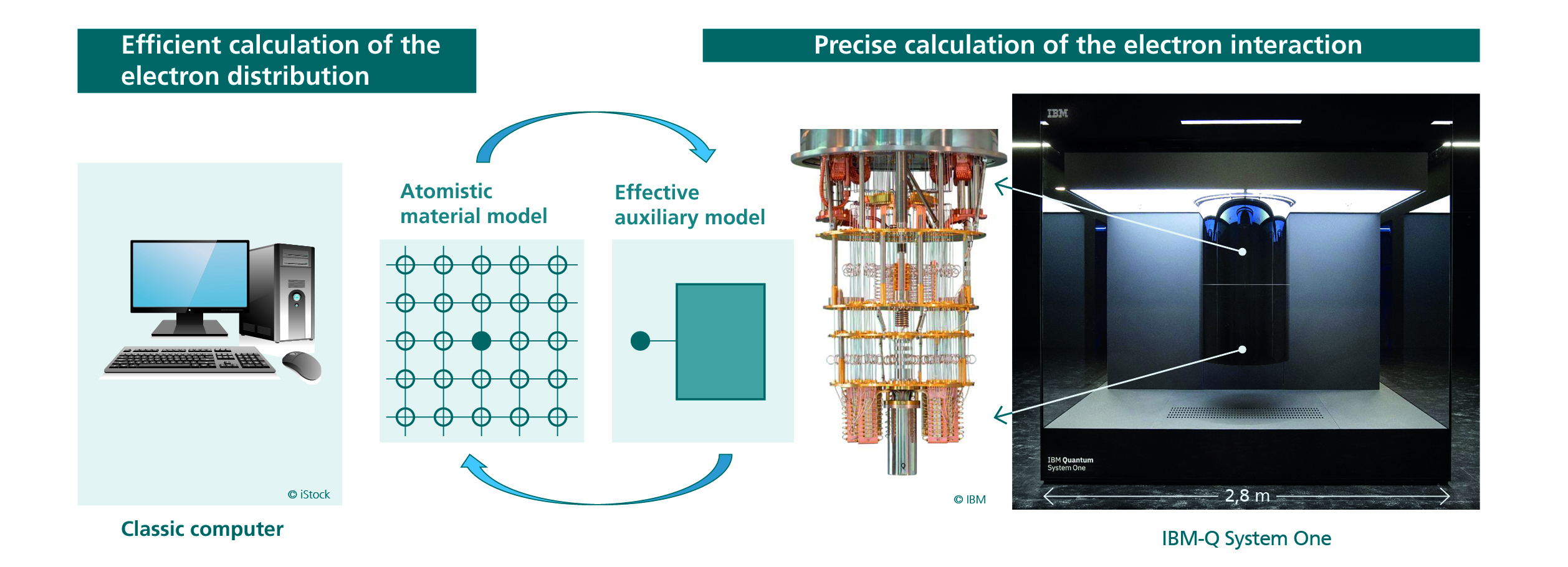Pairing classic computers with Quantum hardware
In principle, a quantum computer, due to its mode of operation, offers ideal prerequisites for mapping quantum chemical processes in complex functional materials. However, the currently available hardware is still inferior to the mathematically ideal performance of a quantum computer. In particular, the decoherence of the system, i.e. the loss of quantum properties due to interference during the calculation time, is a serious problem. This severely limits the universal applicability of a quantum computer at present. The technology is developing rapidly, however, so that in a few years' time, much more powerful and fault-tolerant systems will be available.
We are researching how best to use the quantum hardware available today to address material modeling issues in the most effective manner and are developing specific expertise for hybrid simulation methods. In these hybrid methods those aspects that can be reliably calculated on conventional computers are treated with established methods of density functional theory.
The part of the problem, which classically is the most demanding to solve in terms of computational resources, is mapped to an effective auxiliary model and calculated using the quantum computer. An iteration loop between the two computer systems then provides the overall solution (Figure 1). The aim of our research work is to develop these type of effective models that can be implemented on today's quantum computers.
Our findings form a basis for future software with transferable quantum algorithms.
 Fraunhofer Institute for Mechanics of Materials IWM
Fraunhofer Institute for Mechanics of Materials IWM

